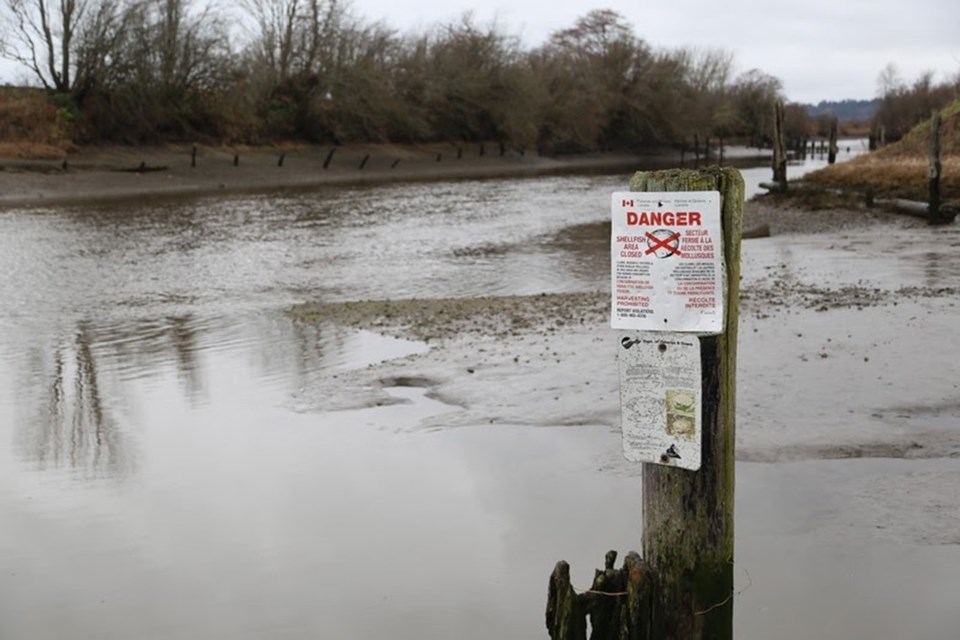Delta will soon take part in a gathering of local and indigenous governments south of the Fraser River to see what can be done to improve water quality of the Canadian-US shared waters of Boundary Bay.
Members of the Shared Waters Alliance, an international working group made up of representatives from government, First Nations and community groups from both countries, made a presentation to Delta council last week to discuss the ongoing shellfish harvesting closure on the Canadian side due to bacteriological contamination.
Indigenous peoples, including the Semiahmoo First Nation, traditionally harvested the abundant fish and shellfish resources for their livelihood.
The Alliance’s objectives include, among other things, a collaborative approach to monitoring and facilitating transparent communication among stakeholders to bring action-based objectives that will achieve measurable improvements in local water quality.
Semiahmoo First Nation Chief Harley Chappell told council they hope to revitalize traditional food sources in traditional territories which has been devastated due to surrounding urban sprawl.
They want to take a partnership approach with neighbouring municipalities, something even more important than ever in this time of reconciliation, he said.
“But really it’s an opportunity for us to come together as neighbouring municipalities and First Nations and begin a discussion around how do we improve some of the water qualities in our territories with the ultimate goal of revitalizing shell fishing in our bays,” said Chappell.
He also noted there has yet to be a wholesome environmental assessment process for Boundary and Semiahmoo Bays and that there are “major gaps” in information.
Christy Juteau, conservation science director for Shared Waters Alliance, said it’s tragic that since the 1960s, shellfish harvesting has been prohibited due to water contamination.
“We all know Boundary Bay is a critical section of coastline. It is recognized internationally as a wetland of importance under RAMSAR (The Convention on Wetlands of International Importance). It is also recognized nationally as an important biodiversity area as well as provincially as a wildlife management area. We’re all interested in improving the health of this very important section of coastline,” she said.
The Alliance’s vision is for a Boundary Bay that is a healthy, vibrant ecosystem with diverse and abundant flora and fauna, and robust water quality including clean rivers and creeks, and providing First Nations food, social and ceremonial security.
The Alliance originally formed in 1999, led by Environment Canada, to address the shellfish harvesting closures as well as the Georgia Basin Action Plan.
The BC Ministry of Environment became a co-chair of the group in 2005 when there was concern about freshwater contamination, a provincial jurisdiction.
In 2008, leadership for the group shifted to Metro Vancouver with the formation and implementation of the Boundary Bay Ambient Monitoring Program, with a final meeting in 2011.
In 2018, Shared Waters was re-formed, spurred by successes that the Whatcom County Clean Water Program had in re-opening shellfish harvesting south of the border.
Shared Waters has since expanded its scope to reflect emerging concerns.
Delta’s Climate Action and Environment staff have been participating in Shared Waters and the city has been involved in several initiatives to support water quality improvements in Boundary Bay.
Council last week also agreed to have a designated staff person to work directly with the Alliance.



